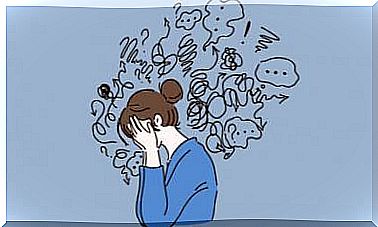In The Dark There Are Always “enlightened ” People Guiding Us
In times of darkness, there are always “enlightened” people who guide us. They are like the light of the sun which crosses a glass roof to inspire us, to give us hope during these moments when we lose the rhythm, the morale and the north of our compass. They are remedies for the heart in times of adversity.
Let’s face it : we all need someone who cares about us. We can love our independence, our proud self-sufficiency and even think that we carry the sun within us. Yet a storm breaks out, and sooner or later the drops of sadness arise, along with the fears, sleeplessness and confusion that only emotional support, empathy, and tenderness can alleviate.
“Sometimes our light goes out and comes back on thanks to someone else’s light.”
-Albert Schweitzer-
Here is a curious fact: in social psychology, we are told that providing emotional support is an art that not everyone knows how to offer. As curious as it sounds, sometimes it is those who love us the most who can pay us such excessive attention that it generates in us a certain feeling of dependence, ineffectiveness or fragility.
The most effective type of support is one that is always present but in a subtle, enveloping and authentic way. We are also talking about this type of help where neither member feels in debt to the other, because there are no “givers” and “receivers” of affection. There is just a bond where a fluid, subtle, and wonderful reciprocity takes place.
We invite you to reflect on this very interesting subject which is also full of nuances.
People who erode and “enlightening” people
We all know what empathy is and how it impacts our daily relationships. By now we are sure that more than once when you have tried to talk to someone who is unable to connect with others, someone who has aggressive, hostile and even destructive tendencies, you say that “this person has no empathy”.
Simon Baron-Cohen, professor at the University of Cambridge and expert in the development of psychopathology, defines these psychological traits with an interesting term: “ erosive empathy ”. According to him, this behavior happens when someone not only stops connecting with his neighbor, but little by little erodes, undermines and fragments with disconcerting slowness the one who is by his side. These are profiles characterized by a certain obscurity.
In the opposite pole, of course, are the “enlightened” people. We can see them as personalities of nobility and goodness, but we can above all define them as women and men who “know how to be and who let be”, as facilitators of an inner harmony, as emotional spinners who bring together our broken pieces to remind us, once again, how beautiful and important we can be.
Psychological characteristics of “enlightened” people
We said at the beginning of this article that giving support is actually an art that not everyone can practice. For example, you should know that when the donor is clearly different from the recipient, discomfort can sometimes arise. The recipient may feel “in debt” or become dependent on a donor who takes advantage of the role of “savior”.
- Enlightened people, for their part, never accept the role of saviors.
- They know how to be without controlling, without judging, without exercising at any time constant attention where the other person necessarily ends up becoming dependent. They are experts at generating genuine personal growth.
- They respect personal spaces, they know how to be present when necessary and protect the privacy of the other when they need it.
- They are present but always subtle presences, with the exceptional capacity to remind us who we are. They worry about us, they bring positivity, courage and hope to help us be in tune with ourselves, with the rhythm of life, with optimism.
Also read:
How to learn to enlighten, how to offer authentic emotional support?
“Enlightened” people guide us during difficult times, accompany us during moments of well-being and inspire us in everyday life. This is something we all know. But would we be able to offer them such qualitative and genuine support?
“If you turn on the light for someone, you also illuminate your path.”
-Buddha-
Whether we believe it or not, offering emotional support is not easy. To do so requires a very deep knowledge of oneself, a good management of his emotions and a decentralization of this “me” where one can make discover to the other all his senses.
Some keys to developing real support
There are those who manage to feel emotional empathy towards the other person but never manage to develop cognitive empathy. It is not only a question of “feeling” what the other is going through, it is also necessary to understand it.
- Thus, it is necessary to develop empathic precision. We are talking about this skill to correctly infer the mental state that the other person is in. To do this, you have to know how to ask the right questions, not to make judgments out loud and to listen carefully.
- Avoid increasing the other person’s anxiety with classic phrases like “it’s nothing” or “it could be worse”.
- You should also know that anyone who is really going through a bad patch does not feel better with the typical “I’m here if you need” or “You can count on me” phrases . More than words, we need real, tangible and visible facts in these moments.
“Enlightened” people don’t talk much, but act. They will be at your side as soon as you ask them and will read your sorrows and sorrows in your eyes. In conclusion, what we sometimes take for support is not really. Good support is not just about saying the right thing, but also doing the right thing through small acts of kindness and genuine concern.
Also read:
Images by Claudia Tremblay and Amanda Cass








